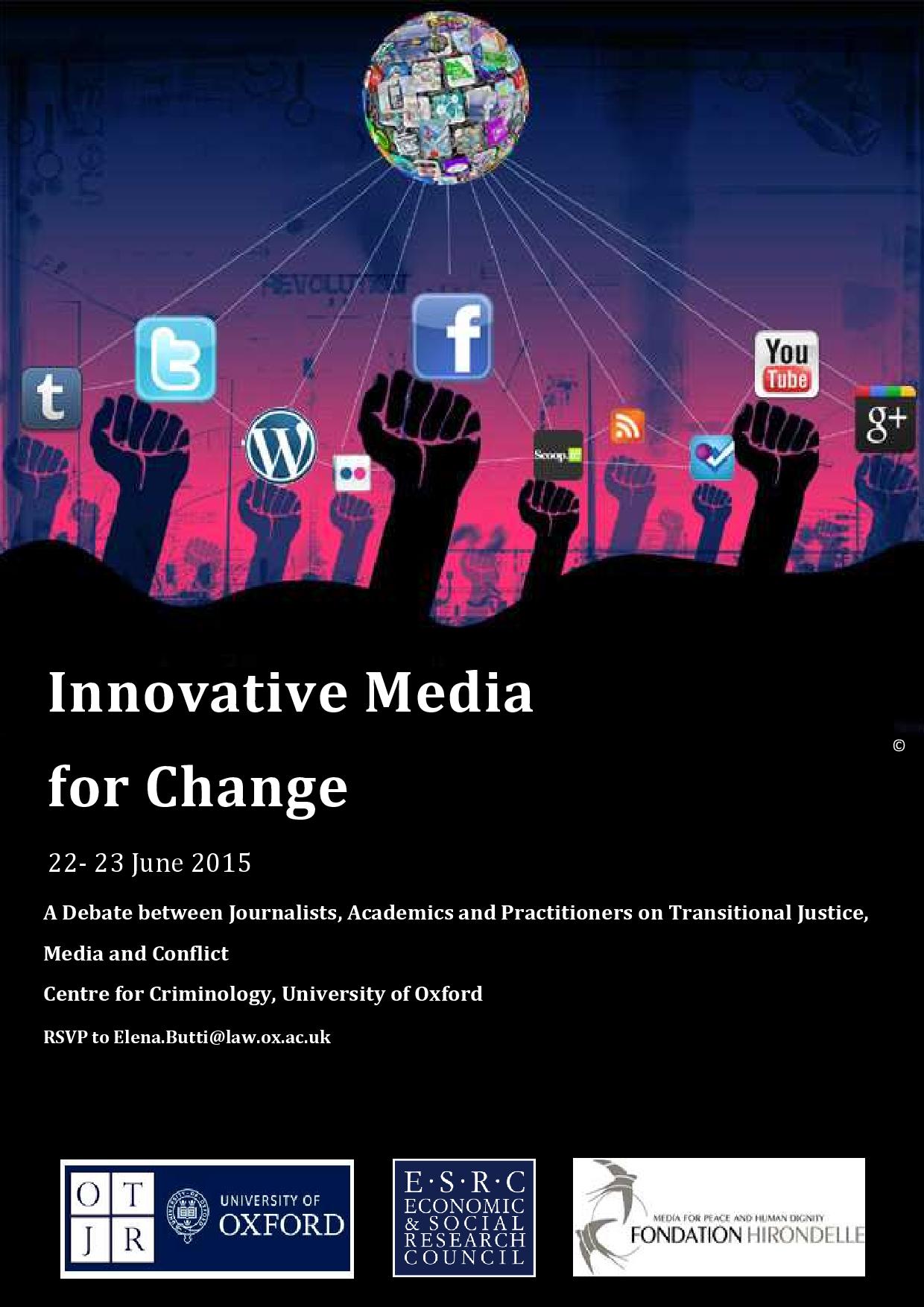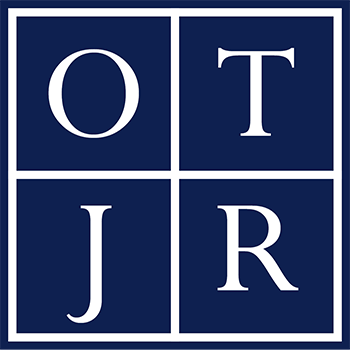Outputs
Outputs of Innovative Media for Change
Output 1: The Innovative Media for Change Report: Opportunities and Challenges for Media in Transitional Justice
Objectives: a) develop a better understanding of the role media can play in TJ; b)initiate a discussion between TJ, media and academia c)raise awareness of those roles.
Two days of fruitful and lively discussions have been comprised and analysed in our core output: the ‘Innovative Media for Change Report’ that is available here and soon on JusticeInfo.net. as well.
The Report provides a comprehensive analysis of the workshop presentations and discussions with many case studies ranging from Sierra Leone to Syria, from the former Yugoslavia to Colombia, Rwanda and Ethiopia. From a mediascape perspective, discussions ranged from the world of YouTube, reporting and verifications apps, to new technologies for the protection and empowerment of citizen journalism, from grass-root reporting to structured documentary-making, and finally from multi-media outreach mechanisms outside of the court-room, to journalism in the courtroom. The Report is structured around three sections:
- a comprehensive summary of the workshop discussions,
- an analysis of the various roles media plays in different TJ contexts and
- an analysis of the potentials and pitfalls of knowledge exchange between media, TJ and academia.
 Overall the Report concludes that both, new and traditional media are susceptible to manipulation, bias and misguided expectations in different ways. At the same time it emphasizes that better cooperation between media, practice and academia can be a fruitful way to maximize their informational and analytical roles while reducing their divisive potential.
Overall the Report concludes that both, new and traditional media are susceptible to manipulation, bias and misguided expectations in different ways. At the same time it emphasizes that better cooperation between media, practice and academia can be a fruitful way to maximize their informational and analytical roles while reducing their divisive potential.
Importantly, the second section of the Innovative Media for Change Report develops a typology of the different and oftentimes conflicting roles that media play in TJ contexts. Under this caption, it concludes that the media can be a ‘victim’, a ‘perpetrator’, a ‘witness’, a ‘truth-teller’ and an ‘activist’ often at the same time.
Key recommendations include:
- Media should rely on journalistic principles and report about TJ as objectively as possible so as to gain trust not only from the public but also from TJ institutions. To that end, the development of international guidelines and best practices is recommended.
- TJ institutions, academics and the public at large should hold media actors who incite violence to account; ‘media vetting’ and media reforms in those contexts would be a first important step in that direction. Read more here
In addition, the third section analyses the challenges and potentials of cooperation between academics, practitioners and journalists in contexts as varied as evidence collection for international criminal tribunals and the peace negotiations in Colombia. Finally, it develops recommendations on how synergies and effective pathways to partnership can be built, while respecting professional boundaries, objectives and risks.
Key recommendations include:
- the development of a common glossary explaining the key terms and principles of each profession to foster mutual understanding and to enable a productive cooperation in particular in those areas, where overlap of interests is to be expected.
- to tap more effectively into the rising technology literacy of affected communities to engage them more proactively in TJ processes through mobile phone technology and innovative online platforms such as JusticeInfo.net . Read more here
You can download the full report here or access the links to the individual sections above.
Output 2: ‘Innovative Media for Change’ Videos and Podcasts
Objective c): raise awareness of the role of media in TJ
The panel discussions of the workshop were recorded and filmed so as to create a lasting and easy accessible online repository that will inform further collaborations and research on this pressing and timely issue. The workshop videos are accesible via the Faculty's Youtube channel and the podcasts of the workshop can be downloaded from the OTJR podcast series. Both will be soon available on JusticeInfo.net as well. See a teaser below:

